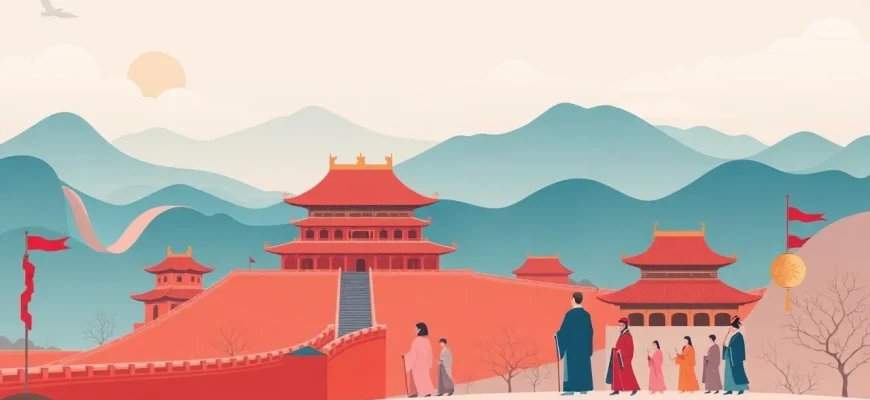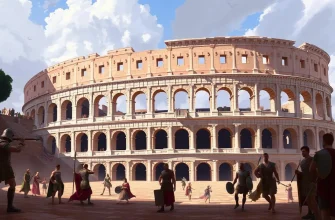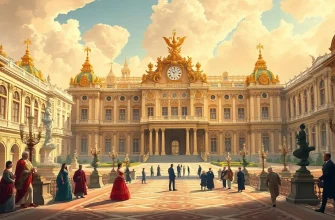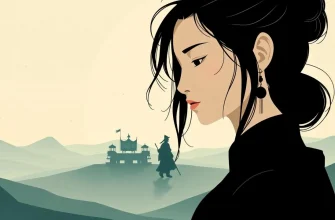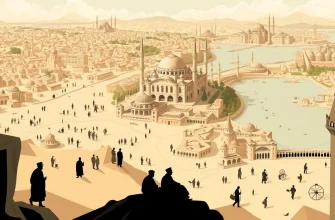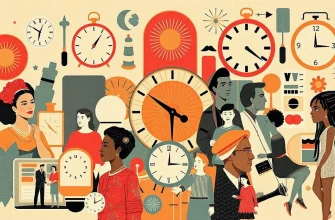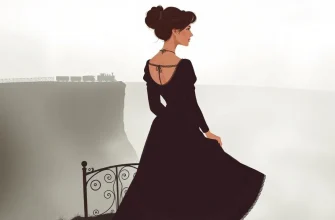Dive into the fascinating world of Ancient China with this curated list of biopics. These films not only entertain but also educate, shedding light on the lives of historical figures whose legacies have shaped the cultural and political landscape of China. From emperors to philosophers, each film offers a window into the past, blending historical accuracy with cinematic storytelling to provide an immersive experience.

The Last Emperor (1987)
Description: This epic film chronicles the life of Puyi, the last Emperor of China, from his childhood in the Forbidden City to his later years. It provides a poignant look at the end of an era.
Fact: It was the first Western film to be shot inside the Forbidden City, and it won nine Academy Awards, including Best Picture.
 Watch Now
Watch Now 
The Emperor and the Assassin (1998)
Description: This film explores the relationship between Qin Shi Huang and Jing Ke, the assassin sent to kill him, delving into themes of power, betrayal, and the quest for immortality.
Fact: It was one of the most expensive Chinese films of its time, with a budget of $15 million.
 Watch Now
Watch Now 
Hero (2002)
Description: Although not strictly a biopic, "Hero" is inspired by the assassination attempt on the King of Qin, exploring themes of sacrifice, honor, and the unification of China.
Fact: The film's use of color to signify different narratives was groundbreaking, earning it international acclaim for its visual storytelling.
 Watch Now
Watch Now 
The Banquet (2006)
Description: Set during the Tang dynasty, this film loosely based on Shakespeare's "Hamlet," tells the story of Empress Wan, who seeks revenge for her husband's murder. It's a tale of political intrigue, love, and betrayal.
Fact: The film features elaborate sets and costumes, with the banquet scene taking months to film due to its complexity.
 Watch Now
Watch Now 
The Warlords (2007)
Description: While not directly a biopic, this film is inspired by the story of the Taiping Rebellion and the rise of a warlord, offering insight into the turbulent times of late Qing dynasty China.
Fact: It was one of the most expensive Chinese films ever made at the time, with a budget of over $40 million.
 Watch Now
Watch Now 
The Great Wall (2016)
Description: While not strictly a biopic, this film uses the backdrop of the construction of the Great Wall to tell a story of defense against mythical creatures, reflecting the era's military and architectural achievements.
Fact: It was the first major Hollywood-Chinese co-production, featuring both Chinese and international stars.
 Watch Now
Watch Now 
The Assassins (2012)
Description: This film tells the story of Cao Cao, a key figure in the Three Kingdoms period, focusing on his political maneuvers and the assassination attempts against him.
Fact: The film features a large-scale battle scene that took over a month to shoot, aiming to accurately depict historical warfare.
 Watch Now
Watch Now 
Confucius (2010)
Description: This biopic focuses on the life of Confucius, the philosopher whose teachings have profoundly influenced East Asian thought and life. It covers his rise to prominence and his philosophical journey.
Fact: The film was released to coincide with the 2,561st anniversary of Confucius's birth, highlighting his enduring legacy.
 30 Days Free
30 Days Free 
The Emperor's Shadow (1996)
Description: This film delves into the life of the Qin dynasty's first emperor, Qin Shi Huang, and his relationship with his court musician, Gao Jianli. It explores themes of power, loyalty, and the sacrifices made for art and empire.
Fact: The film was one of the first Chinese films to be widely released in the West, showcasing the grandeur of ancient Chinese architecture and costumes.
 30 Days Free
30 Days Free 
The Founding of a Republic (2009)
Description: Although set in the 20th century, this film provides context for the transition from imperial China to the Republic, featuring historical figures like Sun Yat-sen.
Fact: It was made to commemorate the 60th anniversary of the founding of the People's Republic of China, with a cast of over 170 actors.
 30 Days Free
30 Days Free 
